Adam Canosa – Songcraft: A Game-Based, Blended Learning Platform for K-5 Music

Despite the proven cognitive, social, and emotional benefits of quality music education, the lack of instruments, instructional time, and interactive digital experiences pose significant challenges for educators. In a landscape where personalized, accessible, and equitable edtech solutions are transforming education, music lags behind. Enter Songcraft, a transformative solution designed to bridge these gaps.
Songcraft transforms classroom devices into a dynamic pitched ensemble, offering a novel approach to teaching music theory and performance. Students, under the guidance of their teacher, progress through culturally responsive tunes using touch or keyboard inputs to play together. This innovative tool accommodates individual play, allowing students to practice at personalized difficulty levels simultaneously. Songcraft not only provides cost-effective access to instruments but also streamlines assessment, saving valuable instructional time. With real-time feedback for students and comprehensive progress data for teachers, Songcraft creates a personalized, engaging environment, elevating music education to new heights.
Chiao-Jen Chang – Navigating the Future of Language Learning: A Critical Analysis of AI Integration and Ethical Considerations
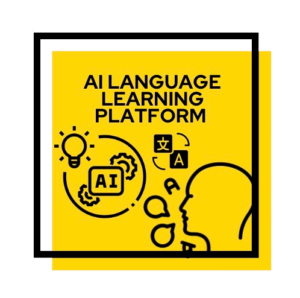
In response to the escalating incorporation of Artificial Intelligence tools in language learning platforms, this report addresses critical considerations surrounding data transparency, ethical implications, and the comparative limitations to human instruction.
The report will first explore AI capabilities for language learning, such as personalized tutoring, speech recognition, and machine translation. While AI has the potential to have positive impacts on student engagement when developing a second language, the report will also discuss key deficiencies with AI, such as the absence of human qualities like empathy, creativity, and nuanced evaluation skills. Next, the report will analyze the integration of AI in Duolingo. This leading language learning provider uses AI as part of its curriculum and provides recommendations for increasing its market share.
This project sheds light on the delicate balance required to advance AI tools for language learning. It highlights the importance of explainable algorithms, increased conversational practice, early intervention strategies for at-risk learners, and personalized planning through reinforcement learning models. The report suggests that responsible AI development can significantly improve inclusivity in language instruction while taking ethical considerations into account.
Katie Cooper – Adaptive Learning Platforms: Revolutionizing Education through Data-driven Personalization
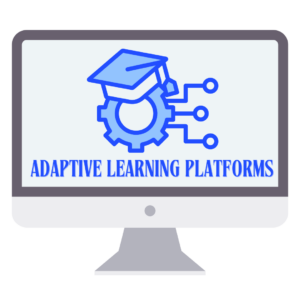
This ePublication delves into the dynamic landscape of k-12 adaptive learning platforms, focusing on their utilization of data analytics, algorithms, and artificial intelligence to tailor content to individual student needs. With a spotlight on Houghton Mifflin Harcourt’s math tool, Waggle, this report examines the functionality and methodologies that define adaptive learning platforms. Through a comprehensive analysis, the key features of these platforms and their transformative impact on education are analyzed and explained. Furthermore, the ePublication provides a view of the market’s evolution, identifying emerging trends and influential players within the industry. By exploring HMH’s Waggle and similar programs, the analysis will help clarify how adaptive learning platforms use advanced technologies to personalize instruction, optimize learning outcomes, and enhance student engagement. It also aims to provide educators, policymakers, and stakeholders with valuable insights into the evolving landscape of adaptive learning platforms, empowering them to leverage the potential of adaptive learning platforms to shape the future of K-12 education.
Elle Gallagher – AI-Powered Professional Development: Unveiling LinkedIn Learning’s Innovations

The developments of generative artificial intelligence (genAI) have drastically impacted the educational sector. This report will focus on ways genAI can revolutionize marketing strategies within professional development courses. Companies are currently beginning to incorporate genAI in their online professional development courses that are offered because it improves efficiency for developing courses and saves users time when comparing options. A particular benefit is using it to power their recommendation engines to potential students. Companies can employ generative AI to enhance product and service recommendations through sophisticated algorithms. AI algorithms, such as recommendation engines, play a pivotal role in tailoring suggestions to users based on their online behaviors. This personalized targeting enables businesses to analyze user patterns and behaviors, effectively segmenting customers and aligning marketing efforts with their interests.
Hannah Garcia – Generative AI and Civic Education for Political Media Literacy
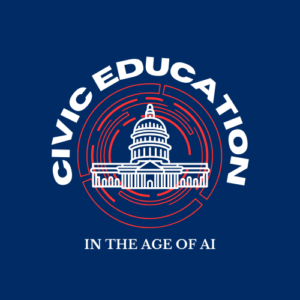
Considerable media attention has been paid to genAI and how it affects constituent access to reliable political information in anticipation of the 2024 election. Because civic education is not standardized across all 50 states, this report will investigate how the private sector has compensated for differences in the treatment of civic education to foster political media literacy amongst constituents amid the emergence of genAI, and if not, why that is. This report will begin with an overview of the market about the state of civic education in the age of genAI. After providing background information, the report will feature The Center for Advanced Virtuality at MIT, a leader in civic education that has integrated genAI into its work. The report will highlight MIT’s strengths and ways it can continue to innovate in this market. The goal of this report is to identify how the edtech industry has engaged with civic education and what gaps exist to inform future innovation.
Lindsay Hann – Education Technology Evaluation in K-12: Insights and Impact
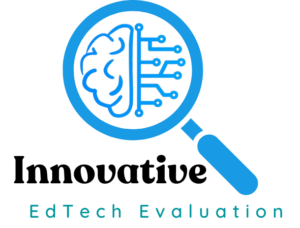
This ePublication embarks on an in-depth exploration of the K-12 Education Technology (edtech) Evaluation sector, a critical yet underexamined facet of the educational landscape. Amidst the rapid growth of edtech tools, educators face the daunting task of discerning which technologies genuinely enhance student learning. This challenge combined with an oversaturated market, makes the role of edtech evaluation companies, such as LearnPlatform and EdTech Impact, increasingly vital. These entities are dedicated to thoroughly evaluating the effectiveness of educational technologies, providing educators with data-driven insights to inform their choices. This report will delve into the origins and evolution of the edtech evaluation industry, highlighting key trends and forecasting future developments. This research will offer strategic recommendations designed to strengthen market presence and drive the advancement of effective edtech evaluation practices, ultimately contributing to the enhancement of K-12 education through informed technological integration.
Huijing Ji – Choosing the Right Major – VR-Based College Major Selection System

As competition in China’s domestic job market intensifies, the requirements for practitioners’ academic qualifications and skills are increasing. However, traditional educational enterprises mainly focus on the top ranks of US universities and ignore the individual needs about matching majors and colleges. Against this background, the decision to study abroad has become increasingly complex, and students are troubled in choosing study destinations, and majors, and adapting to studying in the United States.
VR-based College Major Selection system is a comprehensive learning platform that uses virtual reality (VR) to assist Chinese students in choosing majors and universities that match their interests, as well as helping them better adapt to the American learning environment. The VR-based College Major Selection system will enable students to gain a more comprehensive understanding of future college courses, majors, and potential career environments, allowing them to be more confident in making study decisions. Through innovative VR experiences, VR-based College Major Selection system will provide Chinese students with an unprecedented study-abroad decision-making experience, helping them better adapt to study and life in the United States. The VR experience will offer introductions about college majors and careers, curriculum setting as well as orientation information about America’s top 100 universities.
Rashi Juneja – Empowering Instructors with AI
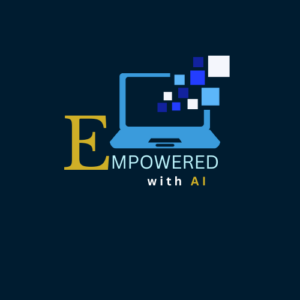
The rapid evolution of technology necessitates continuous learning for instructors. Artificial intelligence (AI) presents immense potential to transform education experiences, yet many instructors lack the necessary knowledge and skills to leverage its power effectively. This innovative course, “Empowering Instructors with AI,” addresses this critical need by providing instructors with a learning experience that can significantly improve their understanding and implementation of AI in their teaching practices.
Designed to be accessible and comprehensive, the course aims to significantly improve instructors’ understanding and implementation of AI in their teaching practices. The modules cover a range of AI-related topics and tools. Beyond theoretical understanding, instructors actively engage in applying AI tools by developing deliverables.
Peer feedback and guidance from facilitators further deepen the learning process and provide practical insights. This approach empowers instructors to confidently integrate AI into their teaching repertoire, ultimately leading to enhanced pedagogies, increased student engagement, and improved learning outcomes.
Livi Lawton – AthleteConnect
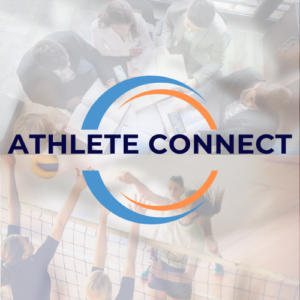
AthleteConnect is a digital platform designed to address the challenge of linking collegiate athletes with former college athletes who are now in the workforce. Drawing on the demand for athletes in the workforce due to their unique skill set, AthleteConnect aims to make the career search easier for both athletes and employers while also incorporating mentorship programs. AthleteConnect facilitates effortless connections between college athletes seeking employment and professionals across different industries, and it will be available as a mobile application developed for smartphones. This digital platform offers a comprehensive solution by seamlessly linking collegiate athletes with professionals in various industries.
Zixing Li – Emotion Regulation System: Enhancing Student Emotional Well-being in K-12 Education
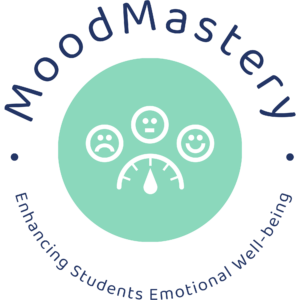
In K-12 education, emotion is often overlooked, though it is a crucial component of learning. Moreover, research indicates that the outcomes of previous courses can influence students’ affective inclination in subsequent subjects. Additionally, emotions arise during the learning process, and they can impact students’ motivation and academic performance. In response, MoodMastery is a system that gathers data on students’ emotional states, stability, and the effectiveness of different support strategies, providing a tangible representation of students’ emotional management progress. MoodMastery will be divided into two parts: before the first class begins and during the course. Before the first class begins, students will complete a questionnaire to assess their emotional inclinations toward the upcoming new course. Based on their responses, MoodMastery will offer strategies and interventions to help them improve their emotional status to participate positively in later classes. After the course, to monitor students’ emotional states consistently, students will complete regular surveys or weekly logs that follow class meetings, assignments, and exams. Corresponding training and motivational strategies will be provided based on the collected data. Using MoodMastery will empower students to identify their emotional states and learn effective strategies to regulate them. As a result, students will be equipped to manage their emotions positively across various subjects in future courses.
Vicky Lisle – Pomona Learning Design: A Design-Based Learning Capstone Program for High School Students

The world has changed tremendously since the Covid-19 pandemic, but schools are struggling to prepare students with the knowledge and skills they need to succeed in the modern workforce. Many students are becoming disengaged by the school system’s lack of relevance to their lives. Pomona Learning Design delivers a capstone program where high school students will use the design thinking process to develop problem solving and technology skills throughout their 9th -11th grade social studies coursework. Seniors in the capstone course will apply what they have learned to design innovations to real issues faced by local businesses and organizations. By integrating design thinking into existing course offerings, Pomona makes it easy for educators to teach problem solving skills, nurture student interests, and connect curriculum to real issues in students’ lives. The program uniquely positions students for success in both college and their future careers by leaving them with a portfolio of work that showcases their ability to tackle complex problems and the variety of skills in their toolbox. Graduates are not only prepared for college; they are empowered to make a difference in their field of interest.
Autumn Owens – Champion Training
Champion Training is dedicated to softball and baseball for youth in Apex, NC. The goal is to create a facility catering to athletes, providing resources for strength training, speed and agility development, and skill enhancement for their respective sports. The complex will feature hitting cages equipped with pitching machines in each unit, along with necessary equipment such as baseballs, softballs, tees, and protective screens. Open cage times will be available for free use, allowing athletes to access the facility without constraints. Additionally, professional instructors specializing in hitting, fielding, pitching, and catching will be present. The overarching purpose of this initiative is to develop and solidify the concept, intending to present it to stakeholders in the future to garner support for the establishment of this business. The envisioned sporting complex aims to positively impact the local baseball/softball community, transforming the athletic landscape in the Triangle.
Will Peters – Growing Bookji: Taking an Edtech Product to Market

Bookji is a social reading platform that leverages current trends in social media, visual imagery, and interactive mapping features to motivate middle and high schoolers to read. Currently, there are several products that encourage students to read, but they are either hard to use or not engaging. Bookji stands out from its competitors because of its sleek design, intuitive user experience, and visual content that draws many parallels to social media applications. With over 500 active users already on the platform, this venture plan will explain Bookji’s strategy for increasing its market share by achieving product market fit and cement its place as a leading product for supporting read in middle and high school students.
Thuc Anh Pham – Unleashing the Power of AI: A Case Study on Language Learning App through ELSA Speak
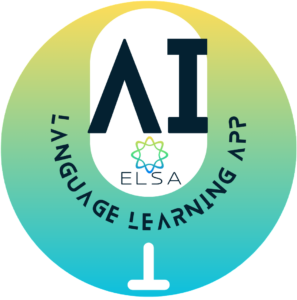
This research project undertakes a comprehensive analysis of the AI-enhanced language learning industry, with a nuanced focus on the case study of ELSA Speak – an app that helps users improve their English pronunciation and vocabulary. The industry’s historical evolution traces a path from conventional language learning methods to the contemporary integration of AI technologies, emphasizing personalized learning experiences and underlining the importance of pronunciation improvement for English Language Learners (ELLs). Key industry trends encompass the process of natural language processing, machine learning algorithms, and voice recognition technologies, alongside a surge in mobile-first approaches and gamified learning experiences.
ELSA Speak emerges as a high-performing entity within this dynamic landscape, distinguishing itself through specialized AI-driven pronunciation enhancement. The project concentrates on ELSA Speak’s internal dynamics, highlighting strengths and weaknesses, while contextualizing its positioning within the industry. It explores the external factors offering growth opportunities, such as global expansion strategies and adaptive AI models, while also scrutinizing potential threats to its success. The research concludes with insightful predictions for the future of the AI- enhanced language learning industry, anticipating continued innovation, increased inclusivity, and heightened competition among industry players.
Flynn Reed – EnvironEd

Children will dictate the future of the environment. Currently, at most public elementary schools, environmental education or discussions about climate change are not part of the science curriculum. This gap is the focus of EnvironEd, an app that helps educate elementary school students specifically ages (5-8) about environmental conservation efforts and geographic regions in North Carolina through games, videos, maps and AR experiences integrated into the curriculum. EnvironEd targets students ages 5 through 8, exposing them to environmental education in an exciting and engaging way. Students use a map within the program to select local regions, where they can then explore AR educating them about Climate Change in NC regions. These regions include the Coastal Plains, The Piedmont, and The Mountains. Children can engage with environmental characteristics firsthand and learn actionable steps to contribute to conservation efforts. EnvironEd can be utilized on small devices through the mobile app store designed for iPhones and Android.
Jamie Storyward – Digital Accessibility in Course Design
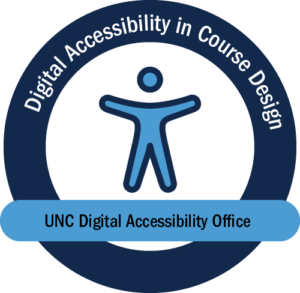
The Digital Accessibility Office (DAO) at the University of North Carolina at Chapel Hill is committed to creating an inclusive digital experience. The Digital Accessibility in Course Design training provided by DAO to UNC faculty aims to enhance their understanding of the challenges faced by students with disabilities and equips them with the knowledge to develop accessible content, thereby fostering an inclusive learning environment conducive to student success. This project will be development of a 10-module training that is applicable to any teaching faculty at UNC Chapel Hill with digital content, including a Canvas site. In this training, faculty will learn how accessibility is a core component of the Universal Design for Learning, hear about laws and policies requiring accessible course content, and get tips on creating accessible digital course content, including documents. Learners who complete the training will be able to evaluate their online materials and remediate many accessibility issues. They will also know where to turn for additional training and support. This training has been redesigned to include multi-media, be interactive, and offer opportunities for practice.
Siyu Wei – Undergraduate Second English Speaker Support App
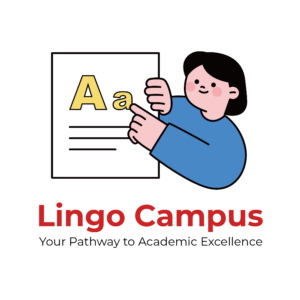
Undergraduate international students studying in the United States often face significant challenges in adapting to English-based academic and social environments. This project presents an innovative mobile application called LingoCampus, which is designed to facilitate English language learning and academic integration for these students. LingoCampus provides tailored English language exercises that are aligned with daily undergraduate content in the specific discipline of the user’s choice. In addition, it connects learners at similar stages of their education and facilitates collaborative exercises and cultural exchanges, resulting in a supportive community. Incorporating elements of self-regulated learning theory, LingoCampus integrates motivational rewards to maintain student engagement and support emotional well-being. The significance of this program lies in its potential to close the language gap, improve academic performance, and create a supportive network among international students, thereby enriching their educational journey and integrating them into the U.S. academic environment.
Peizhe Zhang – Let’s Study Together—Classroom Learning Evaluation System
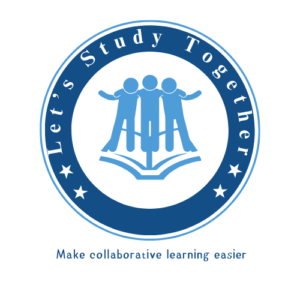
The classroom serves as the primary arena for education and teaching. When students’ behavior in the classroom learning process is evaluated timely and accurately, it can promote their learning and development. ‘Let’s Study Together’ is a series of modules designed for middle and high school students. These modules include student self-evaluation and peer assessment in class, as well as small group self-evaluation and peer assessment. The system also incorporates teacher evaluations of individual students and groups, along with evaluations of teacher performance.
‘Let’s Study Together’ allows teachers to customize the evaluation criteria, weights, and algorithms based on different disciplines and assessment methods. It enables them to score and provide feedback on students’ classroom activities, as well as record the data. Teachers, students, school administrators, and parents can access and analyze students’ learning progress according to their respective roles. They can identify and address issues in the learning process. Regular student evaluation reports are generated to meet school requirements, ensuring consistent information sharing among teachers, parents, and students. This fosters a unified understanding and communication between home and school, enhancing the overall student learning experience.
In conclusion, ‘Let’s Study Together’ promotes the development of students’ metacognition to achieve an “efficient classroom”.